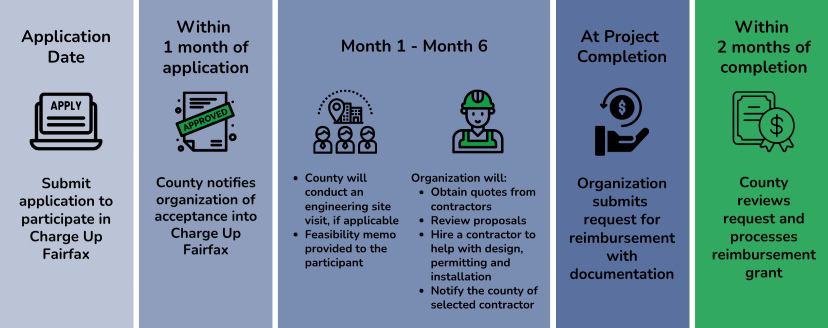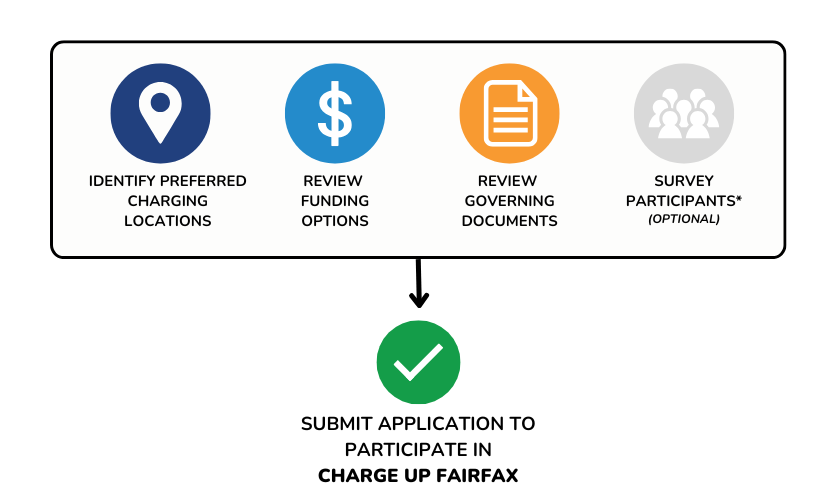All organizations selected to participate in the Charge Up Fairfax program are eligible to apply for a grant to cover a portion of eligible expenses for the installation of Electric Vehicle Supply Equipment (EVSE). Organizations in Fairfax County that are classified as having high or very high vulnerability in the Fairfax County Vulnerability Index may be eligible for higher grant amounts.
Starting in 2025, potential grant amounts are as follows:
| | Grant-Only Program | Full-Service Program | Combination with Dominion Energy Level 2 Program |
| Low Vulnerability | $10,000 | $8,000 | $10,000* |
| High Vulnerability | $12,000 | $10,000 | $12,000* |
*Dominion Energy incentives are separate and contingent on acceptance into the Dominion Energy Level 2 Program
Grants will be awarded on a reimbursable basis to organizations in Charge Up Fairfax, after the EVSE is installed and operational. If grant funds are desired, organizations must contact OEEC to submit a request for grant funds and provide documentary evidence of eligible expenditures before grant funding will be disbursed. OEEC staff will verify the EVSE is complete and operational. The request for grant funds must be made within one calendar year of acceptance into Charge Up Fairfax.
Eligible expenses under Charge Up Fairfax Program:
- Engineering design
- EV charging equipment
- Electrical work necessary to power or install the charging station(s)
- Installation costs including trenching and building penetration repair (if any)
Expenses not eligible under Charge Up Fairfax Program:
- Equipment purchased and upgrades made to prepare the community to be EV-ready, such as solar canopies, the creation of new parking spaces, or adding a sidewalk (excludes necessary electrical work)
- Fees incurred by attorneys, consultants, or management companies
- Changes in insurance premium or any charges from insurance companies
- Operation and maintenance expenses
Equity Considerations
Organizations in Fairfax County that are classified as having high or very high vulnerability in the
Fairfax County Vulnerability Index are eligible for higher grant funds.
OEEC will use GIS data to confirm whether the organization is in an area shown in the Fairfax County Vulnerability Index.
 Charge Up Fairfax is a program to help organizations and their members access charging for electric vehicles (EVs).
Charge Up Fairfax is a program to help organizations and their members access charging for electric vehicles (EVs).


